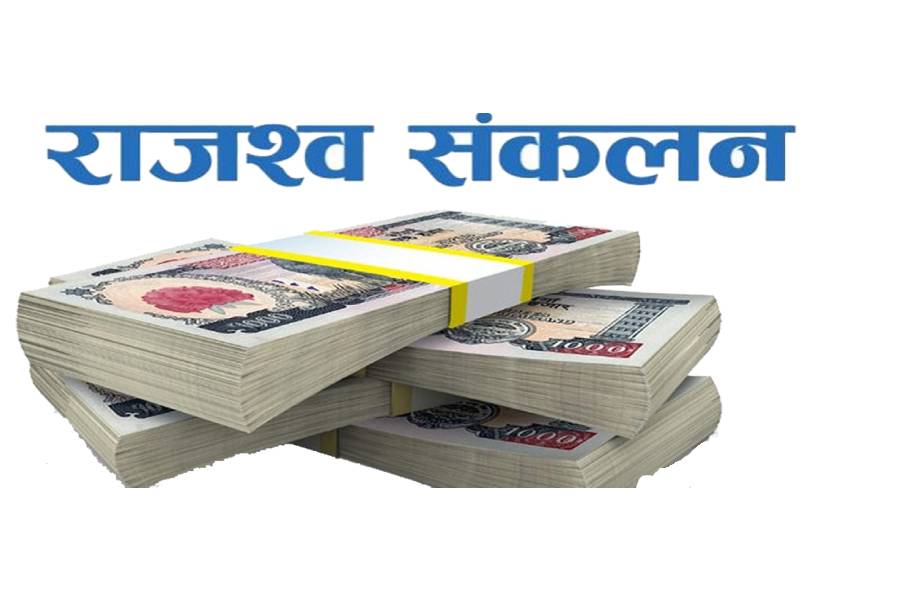Mahottari. The challenge of what can be done is now realized by looking at the Nadi Ukas land located on the banks of the Sunny Khola in Gaushala-8 Kusmadhi, Mahottari. Until three years ago, the barren land of the Gegyran sandy river has now become a ‘gold-growing’ land thanks to the hard work of farmers. Gegyran, which did not even have a pond, is now lush green everywhere you look.
It has been three years since the landless farmers of Kusmadhi have been working bare-chested in the valley that was uprooted by the Sunny Khola. Various fruit trees are now growing in the one hundred and one bighas of Nadi Ukas valley that was uprooted by the river. The United Nations Development Programme (UNDP) has helped farmers in planting fruit trees.
11,000 trees, including mangoes, litchis and lemons, are growing here. Vegetable crops are thriving in the garden. The hard work of 201 landless farmers from Kushmadhi has paid off in this garden. After the Gaushala Municipality allocated land ranging from four to 10 kattas to landless farmers based on the number of families, cultivation began towards the end of 2078.
The farmers’ enthusiasm has increased with the support of the United Nations Development Programme (UNDP), the Samnati Programme of the international NGO Save the Children, the Community Development and Advocacy Forum Nepal, and the Gaushala Municipality.
Somewhere in the lush green valley, wheat is growing. Somewhere, potatoes are being dug up. Since farmers practice organic farming, the crops produced here are the first choice of consumers. Now, farmers here are struggling to weigh potatoes and deliver them to consumers. “Most of the potato harvesters come to the fields,” says potato farmer Chandrakala Mahara, “I don’t have to worry about my livelihood after starting potato farming.” Poor Dalit communities including Musahar and Chamar from Kushmadhi and indigenous peoples including Koiri, Yadav and Magar are involved in potato farming.
The Gaushala Municipality has provided electrification, two deep borings and six ponds for irrigation within a four-kilometer area within the river catchment area to the farmers here. Similarly, the Samunnati program has taught them how to cultivate gadfly for fertilizer. Similarly, farmer Kameshwor Mahato says that after the Community Development and Advocacy Forum provided technical and seed support for farming, they have become more enthusiastic about farming.
“We did not have our own land, with the help of the municipality and other organizations, we got land to farm and other support, now we do not have to go to anyone to work as laborers,” says Mahato, “We turned laborers into farmers through bagarkheti.” After starting bagarkheti, the Musahar, who became a symbol of the caste community that never saved money, are also considered good farmers. In Madhesh, there is a saying for Musahar, ‘who do not store grain, nor accumulate wealth’. Musahar, who are considered to be proficient in agricultural work, has an established reputation for earning a living by working in farmers’ fields. Recently, after getting the riverbed land of Sanikhola, the Musahars who started their own farming have been able to accumulate grain and cash.
“The first year after getting the riverbed, we spent it digging stones and weeds, but we have been able to harvest since the second year,” says 35-year-old Kavita Sada of the Musahar community of Kushmadhi. “Now, the entire family can afford to dig this very ditch.”
The previously sandy, barren land has now become fertile land with regular tillage, irrigation, and organic fertilizers. Gaushala-8 Ward Chairman Bhoj Bahadur Darlami says that fruit trees planted in this land, which is connected to the forest area to the north, have grown in two years and the crops are also growing easily.
Dr. Dipendra Mahato, Mayor of Gaushala, says that the fact that the previously poor farmers have become good farmers and that the riverside area looks lush with their hard work and the land has been distributed is very satisfying.
Dr. Mahato says that this work has made him very happy because the municipality’s support to the farmers of the farmers has not been wasted. “The municipality is with the farmers, the farmers work hard, and we will continue to support them,” said Dr. Mahato.
Similarly, Nagdev Yadav, chairman of the Community Development and Advocacy Forum, also pledged to continue supporting the farmers of Bagarkheti from his organization. The positive support of everyone has boosted the morale of the farmers of Bagarkheti. “Our hard work has been successful, with everyone’s support, we are growing gold in Bagarkheti,” says Bina Paswan, a farmer from Kusmadhi. Groups of farmers from far and wide have been reaching there to observe the Bagarkheti of Sunnykhola.































प्रतिक्रिया दिनुहोस्